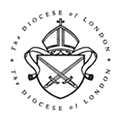Correspondence with the Bishops of London
What is this?
Clergy and laity within the Diocese of London would, on occasion, correspond with the Bishop of London about matters such as issues in the local church and parish, developments within diocese, and the work of individual charities and societies. A significant proportion of this correspondence survives and can be an invaluable resource for researchers.
Where can I find it?
Correspondence with the Bishops of London can be found in the Fulham Papers – the papers of the Diocese of London’s bishops - which are held at Lambeth Palace Library. You can search the contents of the papers using the library’s online catalogue (for example, searching for an individual or parish). Most of the earlier collections constitute letters written to the bishop, while later twentieth century collections will often contain responses also.
Descriptions of Material
A large portion of the correspondence in the Fulham Papers is sent by clergymen on matters relating to their parish. This makes them an invaluable source for researchers interested in their local church, clergy and parish. Early letters were more formal and followed a set template. From the Lowth collection onwards, they become longer in length and more personal, starting to resemble what we would understand to be a modern letter. You should be aware that most such letters sent to Bishop Blomfield have not survived.
The bishop of London was usually involved with a number of societies and charities. It is not surprising that a significant proportion of correspondence should be from these groups. This not only reflected the growth of missionary work in London, but also the concerns they had with Church extension and clerical poverty. This correspondence is particularly useful to parochial researchers interested in the work of certain organisations in their parish. Moreover, it can be beneficial to researchers considering the involvement of the clergy and laity in missionary work.
Moreover, the bishops’ involvement in parliament helped make them important players in national affairs beyond the narrowly ecclesiastical. Some of their letters they received are accordingly concerned with national issues. This is most evident in the Fisher papers: he headed, for example, the Bishop’s War Committee during the Second World War. In contrast to the other collections little parochial documentation exists in the Fisher papers. His collection is instead concerned with war issues. There are also relatively few letters from London clergymen in the Fisher papers.
Many of the bishops’ replies have not survived. A few of the letters sent to bishops Jackson and Temple have notes written on them. Howley and Blomfield’s letter books, however, record the correspondence they sent. This is an especially important source for Blomfield, as letters sent to him have not survived. Howley’s beige letter book contains copies of 133 letters and circulars written during his bishopric (the only years not covered are 1813-1814). Blomfield’s letter books, on the other hand, have, with one exception (vol. 74), been microfiched.





